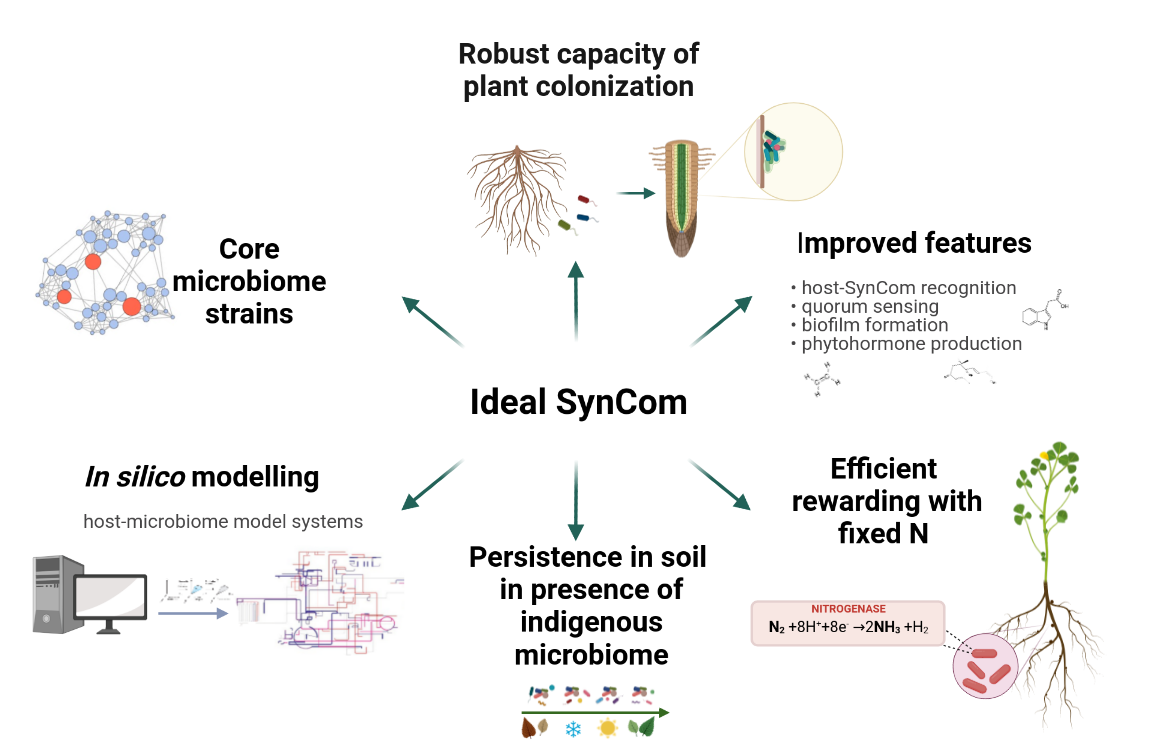Wyzwania związane z tworzeniem syntetycznych konsorcjów

24 01 2023
Kategoria: Seminarium IM
Zapraszamy na pierwsze w tym roku seminarium instytutowe: w poniedziałek 30 stycznia o godz. 14 Francesca Vaccaro z Università degli Studi di Firenze przedstawi seminarium pod tytułem” ‘The challenge of creating Synthetic Communities: Systems Biology approaches to uncover rhizobial interactions in a complex rhizosphere’.
Abstract
One of the alternative sustainable approaches in agriculture to reduce external inputs and enrich fields with nitrogen is the application of Synthetic microbial Communities (SynComs) as bioinoculants. Traditional microbial inoculants have long been applied in agriculture to promote plant growth. However, their poor performance suggests that functionality and persistence of microorganisms in the soil rely on many factors, from interactions with the environment, to the coexistence with indigenous microorganisms of the plant microbiome, to the interaction with the host plant. More recently, System Biology has emerged as an effective top-down approach for designing and predicting testable models of interactions among the members of the microbial community and the plant.
The aim of this project is to design a synthetic microbial community which include rhizobia and other plant growth promoting bacteria as well as fungi, to enhance legume plant growth and yield. In order to achieve this goal, alfalfa (M. sativa). Genomic and systemic approaches will be adopted for a rational use of the wide genetic and functional diversity of rhizobia associated to legume plants. This will ultimately lead to the designing of a SynCom and to the formulation of a seed coating as delivery system of the SynCom. The final step will include the bioinoculant formulation at industrial scale and field trials for the efficacy evaluation.
